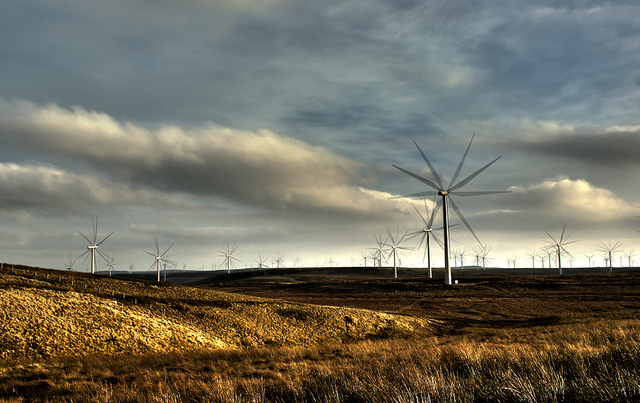Interview with Christine Bauhardt
Prof. Dr. Christine Bauhardt is professor for Gender and Globalization at the Humboldt University in Berlin. Her main research interests are society-nature-relations and gender relations, feminist critique of the economy as well as migration and urban development. She took the time to answer our questions for the interview-series of the Stream towards Degrowth. Imagine we're living in the future, say in the year 2030, in a time of well-being. Humanity enjoys a good life beyond economic growth. Let's look back at the last few decades. 1. In what respect did society depend on growth? Economic growth at that time was fostered by the demand for conspicuous consumer goods, e.g. cars and clothes. The German car manufacturing was the leading sector for expensive and petrol consuming vehicles. They were bought by affluent male car drivers wanting to display wealth and power. The demand for clothes, either cheap or expensive, was driven by the fashion industry and ideas about female beauty and attractiveness. 2. What obstacles impeded a turning away from economic growth? Turning away from economic growth would have meant dealing with projections about social gender norms and gendered desires. Consumer goods do not only satisfy basic needs. They very often compensate for hidden psychic impulses. Therefore, appeals to less, but more deliberate consumption often remain vain. 3. How did your actions contribute to a society beyond growth? I have always been leading a hedonistic lifestyle. Everyday, I chose which mode of transportation met best my travel needs and provided me with most pleasure. In the sunshine I cycled to my workplace, in the rain I travelled by public transport using the time to read the newspaper. I have ever been passionate about good food and I love cooking so I have been shopping at my local farmer’s market as often as possible. Time affluence has always been of great value to me. 4. From your point of view, what does well-being imply in a society that consciously chose low production and consumption levels? Well-being in this sense would imply for me satisfying and reliable social relations. In a society in which commodities are less available by financial means, economic and social security depends largely on the individual capacity to construct and maintain personal relationships. This is time-consuming and can comprise power relations. In the current debate, I think, these aspects are not enough reflected on. 5. Which signs for a world beyond growth did you already notice in 2013? In 2013, the financial crisis was the most obvious sign that economic growth serves the mighty and wealthy and disempowers the majority of people. A world beyond growth in 2013 looked more like a dystopia of inequality and injustice than a happy and socially rich degrowth society. Economic degrowth had to be coupled with political democracy in order to develop a new vision of prosperity.

On top of the ethical, environmental and epidemiological arguments, the animal liberation perspective can also provide an alternative historical view on growth. This article explores the historical connections between animal exploitation, growth and violence, and the lessons these offer for degrowth today. A previous article on this blog argued that degrowth should incorporate an eth...

There’s lots of talk recently about the wealth of Jeff Bezos. There are maps comparing his wealth to entire countries, a “You are Jeff Bezos” game where you can spend his money on different things - like paying their fair-share of taxes, and a graphic that puts his wealth in perspective. A recurring point is that most people simply cannot fathom the amount of money he has. The number is $150...

by Almuth Ernsting (Biofuelwatch) Living in Scotland, I should be proud of our government’s energy and climate change commitments. Not of those by the UK government, whose climate credentials consist mainly of slashing support for onshore wind and solar power, handing some €400 million in subsidies to energy companies for keeping old coal power stations open and riding roughshod over mass oppo...